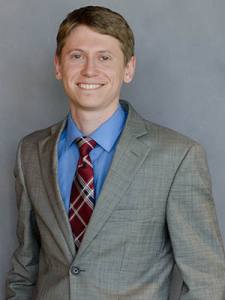Ron Kelley is running for Plano City Council, Place 5. He is running against challengers
Byron Bradford and
Shelby Williams.
Community Impact Newspaper sent Kelley a list of questions about his candidacy. This article is part of ongoing May 4 election coverage and does not constitute an endorsement of the candidate. His responses below have been edited for publication style.
Why are you running for a Plano City Council seat?
I love our city and I am committed to making it even greater. Plano is recognized as one of the best cities in our country as represented by the many accolades we’ve achieved, but we’re at a crossroads. The theme of my campaign is "Keep Plano Proud," because this election is a referendum on keeping the same high level of public safety, fixing our infrastructure and maintaining our parks, recreation centers and libraries. This is directly under attack by a political group that wants to radically change our city. Every decision I make on council, I ask myself, “is this the best thing for Plano, and how will this look 20 years from now?”
What are your qualifications for seeking this office?
I was an executive-level businessman for nearly 20 years with global vibrant, growing companies. I was able to develop and use skills in the areas of strategic planning, managing capital and operating budgets, contract negotiation, business start-up experience, and personnel management. In 2004, I left the corporate world to run a nonprofit organization whose focus is to provide people with a wide range of services. While on City Council, my leadership has been recognized—I’ve been selected to represent the city on several key regional boards and commissions; I was elected as deputy mayor pro tem and now serve as the mayor pro tem.
If elected, what would your top priorities be?
I am committed to public safety, improving our roads, keeping our city property taxes and debt at the very lowest without cutting service levels, and lastly, revitalizing the Collin Creek Mall-US 75 corridor area. Since my space is limited here, let’s talk about your property tax bill. If you are like me, when you see your bill every year, it’s alarming. But consider the facts. The city tax portion of your bill represents less than 20 percent of your total bill, but PISD makes up a whopping two-thirds. This 67 percent includes $185 million for Robin Hood that you, the Plano taxpayer, sent to Austin. This is a hidden tax and it is not going away.
As for your city taxes, let’s look at the 2018-19 budget. The average priced home in Plano was valued at $369,050. That home saw city property taxes go up $3.16 per month. What the Plano citizen received for $3.16 is the very best public safety, as our city was rated one of the safest cities in America. We placed public safety officers in our schools to protect our children; we increased our infrastructure budget to fix our aging roads, sidewalks and alleys; and we funded our Capital Maintenance Fund, which allows us to cash pay certain infrastructure projects and avoid incurring long term debt. This average priced home in Piano will pay $1,359 in city taxes—that’s the lowest property tax bill for a similarly priced home that you’d pay in any large city in the Dallas-Fort Worth area. For example, the same valued home in Garland will pay $2,392, in Richardson, it’s $2,307. I am committed to keeping our city property taxes the lowest in our region, continuing to offer the exemptions (e.g., the 20 percent homestead exemption and senior freeze) and keeping our debt low.
If elected, would you generally support or oppose rezoning requests that include multifamily residential options, such as apartments?
My track record on council has been to oppose multifamily housing. My votes prove that statement with the single exception of a high-end downtown Plano project that would allow more people to live and support the downtown economy. With that said, as with the highly successful Shops of Legacy and Legacy West, there are very limited areas in our city where you can allow greater density. I believe the redevelopment of Collin Creek Mall will be an example where we can allow some density with the different housing types that will include some multifamily. (Keep in mind that “multifamily” doesn’t necessarily mean “just apartments"; it can also include townhomes and other housing options that appeal to empty nesters, for example.) Having some new housing in the Collin Creek area will actually reduce some of the traffic impact and help ensure that the redeveloped retail there will be successful. That’s in everybody’s best interest.













